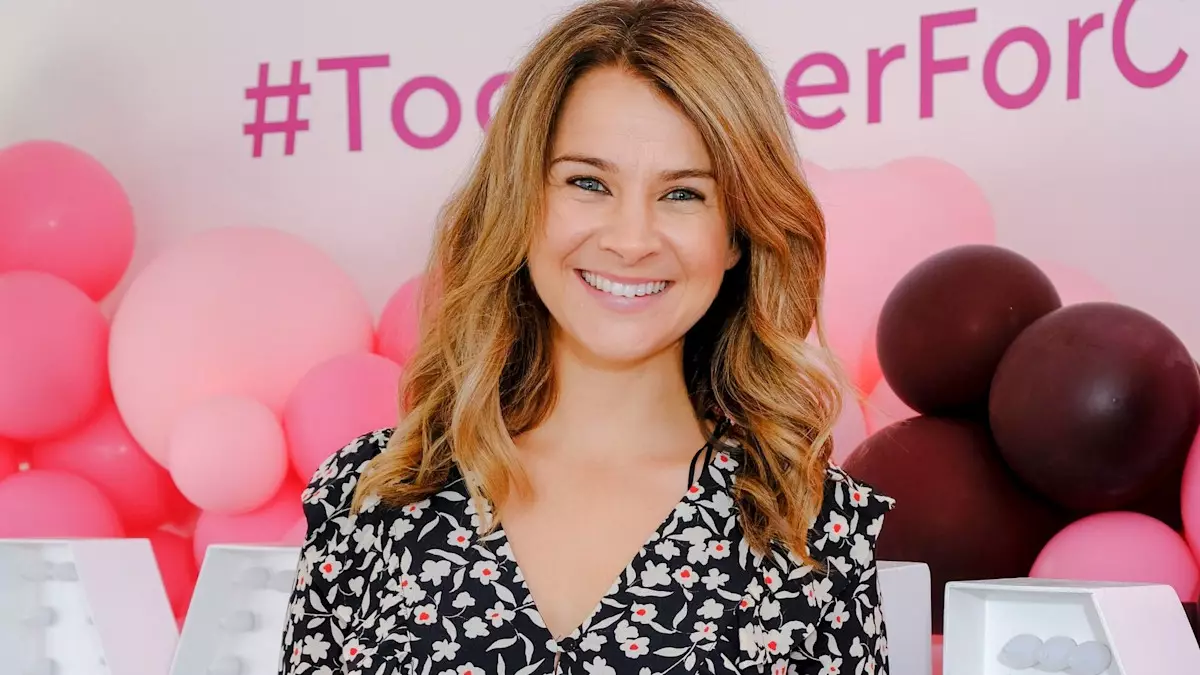Izzy Judd, a gifted violinist and the wife of McFly drummer Harry Judd, embodies the idea that music has the power to heal and connect. Her personal journey with music took a poignant turn following a tragic family incident—the traumatic brain injury of her brother, Rupert, from a car accident in 1997. Though this event marked a challenging chapter in Izzy’s life, it also illustrated music’s profound capability to maintain bonds and foster resilience in the face of adversity.
From a young age, music emerged as a crucial aspect of Izzy’s life, intricately woven into her family dynamics. With Rupert, a budding French horn player at the Guildhall School of Music when tragedy struck, the family turned to music as a form of solace and connection during their darkest hours. Izzy recalls playing music for her brother during his recovery, highlighting how music transcended the limitations imposed by his condition. Even amidst significant brain damage, Rupert’s ability to recall and play musical pieces from his past speaks volumes about music’s unyielding presence in their lives.
The connection Izzy draws between music and emotional healing reveals how art can serve as a lifeline. She notes, “In the moments after his accident, before he could speak, we played music to him.” The memories tethered to musical compositions bridge the gap between despair and hope. It underscores a universal truth: music possesses a unique capacity to articulate emotions that words often fail to convey.
Izzy’s dedication to music extends beyond personal healing; it manifests in her work as an ambassador for Future Talent, a charity that champions young musicians from disadvantaged backgrounds. Through initiatives such as the Big Give Christmas Challenge, Future Talent provides valuable resources including mentorship and performance opportunities, ensuring that musical aspirations are nurtured regardless of a child’s background.
Reflecting on her own experiences, Izzy emphasizes the importance of providing young talents with the right tools to succeed. “I was fortunate to be given opportunities to make music,” she states, shedding light on the disparity many aspiring musicians face today. There are countless children with undeniable talent but lacking the means to realize their potential. Future Talent’s role is crucial in bridging that gap, offering not only instruments and lessons but also a supportive community.
The inspiring stories of young musicians like Fauve, a cellist who benefited from masterclasses, and Jimmy, a guitarist slated to perform with Izzy in a future concert, highlight the transformative impact of such initiatives. The discipline and resilience garnered through their musical pursuits demonstrate that the journey towards mastery cultivates invaluable life skills. As Izzy poignantly questions, “When you find something difficult, how do you navigate through it?” The lessons learned through music transcend the boundaries of art, teaching perseverance and emotional intelligence.
Today, as the mother of three young children—Lola, Kit, and Lockie—Izzy remains committed to embedding a love for music within her family. She advocates for integrating music into education, fervently wishing that every primary school would offer singing and choir opportunities. This vision underlines her belief in music not merely as a hobby but as an essential part of childhood development.
Whether it’s her daughter Lola learning the violin or her own experiences as a child immersed in music, Izzy recognizes the formational power of these activities. Music has been instrumental not just in nurturing creativity but in building confidence and resilience. The environment where children can express themselves through music creates a foundation for emotional growth and communal belonging, attributes that are crucial as they navigate life’s challenges.
In essence, Izzy Judd’s journey illustrates the transformative power of music as both a personal refuge and a medium for community connectivity. Her legacy as a musician and advocate reflects a profound understanding that music is a universal language, one that not only entertains but heals and empowers—an enduring reminder of the strength found in harmony, even in the face of hardship.

